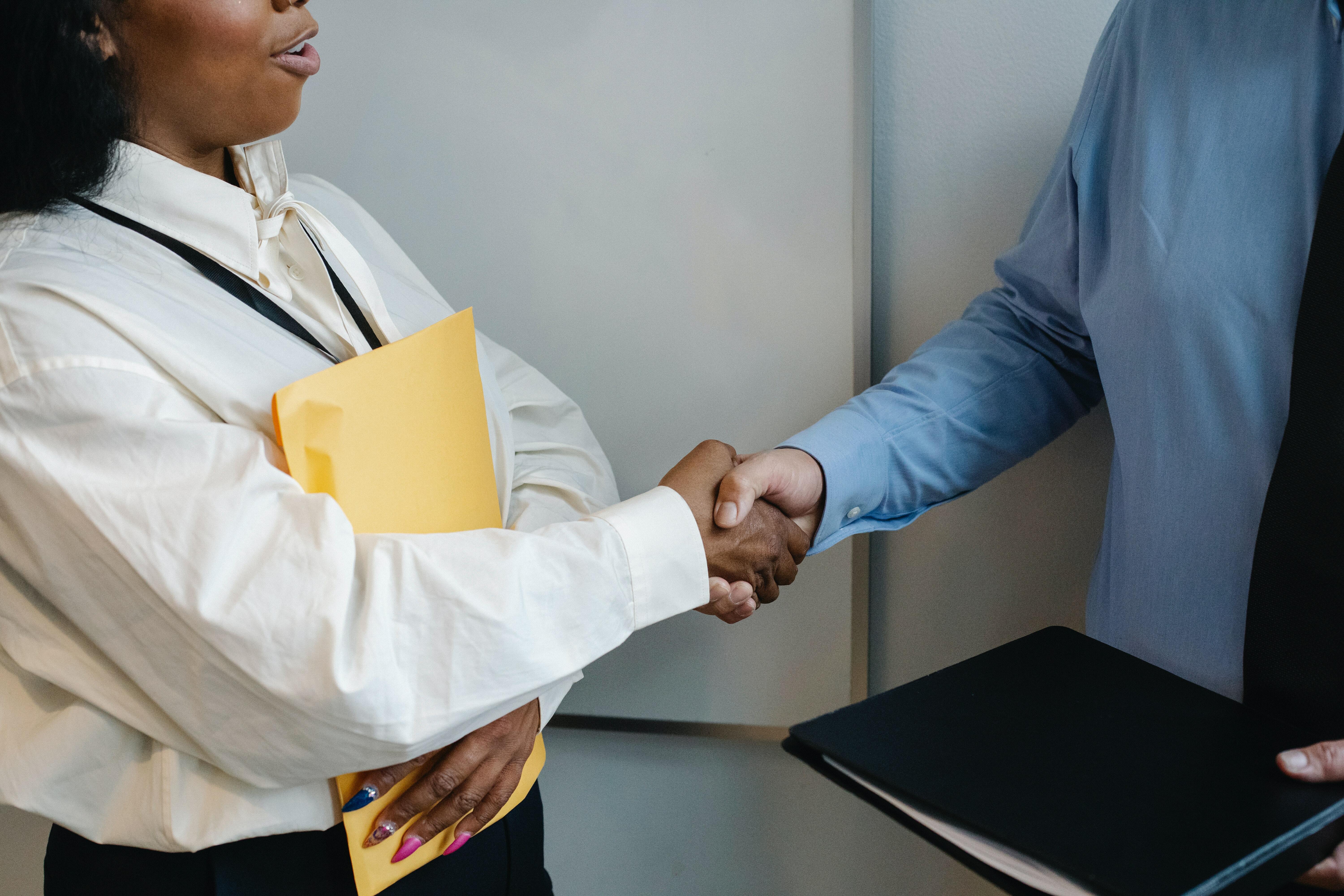Our guide to acing a French job interview
Posted by Josh on 9th Jan 2023 in the blog in the category
If you want to do well in a job interview, preparation is key.
Nowhere is this more the case than when you're being interviewed in French. Not only will you need to convince your potential employer of your value in a second language, but you'll need to be aware of the customs and expectations that are a part of French interview etiquette.
With the right preparation, however, your French language skills — not to mention the commitment and talent that they indicate — can give you a huge advantage in the competitive job market. So let's have a look at some of the important things to bear in mind.
Be Prepared
It's always a good idea to come prepared to your interview. Make sure that you've researched the company, that you know your CV or résumé back to front, and that you can speak at length about any of the experiences, skills or previous employments you've listed on it.
That said, you can't always predict what you're going to be asked in the interview. Preparation can only get you so far, and you need to be able to speak about things which you might not be anticipating. But there are some questions which are likely to appear in any interview, regardless of the position you're applying for, for example:
Why do you want this job? | Pourquoi voulez-vous ce travail ?
Why are you leaving your current job? | Pourquoi quittez-vous votre emploi actuel ?
What are your greatest strengths/weaknesses? | Quelles sont vos plus grandes qualités/faiblesses ?
Where do you want to be in five/ten years? | Où voulez-vous être dans cinq/dix ans ?
Which accomplishment are you most proud of? | De quelle réussite êtes-vous le plus fier?
It's a good idea to memorise your answers to these questions in French. A little hesitation is inevitable in an interview, particularly if you're responding in your second language. But being able to reply quickly and fluently is a fantastic way to make a good impression. It will also minimise your chances of being caught off guard.
Don't just rely on memory, however. Perhaps the most important part of interview preparation is providing yourself a solid foundation with which to be able to respond to any question, and to discuss any subject that might come up. Equally important as knowing the details of the role, therefore, is making sure that your French is as good as it can be.
Our advice? Practise, practise, practise! Prioritise speaking and listening material in the run-up to the interview, and if you can, set up a mock interview with a friend. Familiarise yourself as much as you possibly can with the interview environment — if nothing else, you'll feel more confident when it comes to the real thing.
French Interviews might not be what you're used to
Another thing to consider is French interview culture. Job interviews tend to be different depending on where you are in the world, and if you're going for an interview in France (or for a French company), it's worth bearing in mind certain idiosyncrasies.
For instance, it isn't uncommon for French interviews — like French meals — to run on for hours, which can come as a shock to foreigners. If you find yourself glued to the same seat for three hours, it doesn't necessarily mean that you're doing well — but neither does a brief interview mean that you've botched it. Ultimately, it will come down to the preferences of the employer. Just be ready to give up half a day to the interview process - which is all the more reason to be fully prepared.
Don't be alarmed if the interviewers ask you questions that might seem more personal than what you're expecting. While it's illegal in France to ask about certain subjects such as your political views, it's standard practice to enquire as to your marital status, and of course, if you're applying from outside the EU or EEA, about your Visa status. Just don't mistake this as an invitation to drop your formality.
Last but not least, if you're in a different country from your interviewer — and the interview is taking place over a video call — make sure to check that the time of the interview is the same for both of you. Time zone differences can cause confusion, so it's always worth clarifying.
Appearance matters
French interviews tend to be on the formal side, so make sure to dress smartly. A shirt and trousers or dress in neutral colours is always a safe bet, even if your interview is over a video call. And if isn't, try to avoid smoking right before the interview. Even though smoking is far from a taboo in France, you're best to refrain from it in circumstances such as this.
Show off your French skills
It’s unlikely your potential employer will be looking to catch you out when it comes to speaking French — a few mistakes here and there are natural, given that French isn’t your first language. But being able to speak French well is a sure way to impress them, giving you an advantage over employees who may not be able to speak a second language.
Use industry-specific terms and expressions. For instance, if you're applying for a job in finance, you may want to familiarise yourself with the French translations for nomenclature such as 'quantitative easing' (l'assouplissement quantitatif) or 'balance sheet' (le bilan). There's a good chance the interviewer will ask you about them, and even if they don't, it's a good idea to include these terms in your interview answers to demonstrate your knowledge. And don't rely on the words being the same in French as they are in English. Even for loanwords, the French language has a habit of 'Frenchifying' English terms.
Be polite
This goes without saying, but perhaps the best way to impress your interviewer is to be kind and respectful. However, being polite in French requires a bit more than you might be used to. First and foremost, remember to use ‘vous’ and 'votre' — not 'tu' and 'ton' — when addressing your interviewer. Another thing to remember is that while ‘Mister’ and 'Sir' or 'Miss' and 'Madam' can sometimes be seen as a little too formal in English-language settings, it's a courtesy in France to refer to your interviewer as 'Monsieur' or 'Madame'. Avoid calling them by name.
Although kissing on the cheeks is a common salutation in France, this is also something you’ll want to refrain from in an interview setting. Handshakes are common, but your best bet is just to go with the flow.
Once you leave the office, it’s a good idea to send a brief e-mail to the employer thanking them for the opportunity to interview.
So, be polite, be prepared, and don't worry if you feel a little nervous — it's perfectly natural.
Bonne chance!
Check out some of our other blog posts!
French puns to make you laugh
Posted on by Josh in the learning french categoryHave you heard any of these puns before?
Read moreHow to use the Learn French With Alexa website
Posted on by Josh in the categoryThis quick guide tells you everything you need to know to navigate the Learn French with Alexa website.
Read moreHave fun learning French Today
People from all over the world enjoy learning French with Alexa Polidoro’s popular French audio and video lessons.








